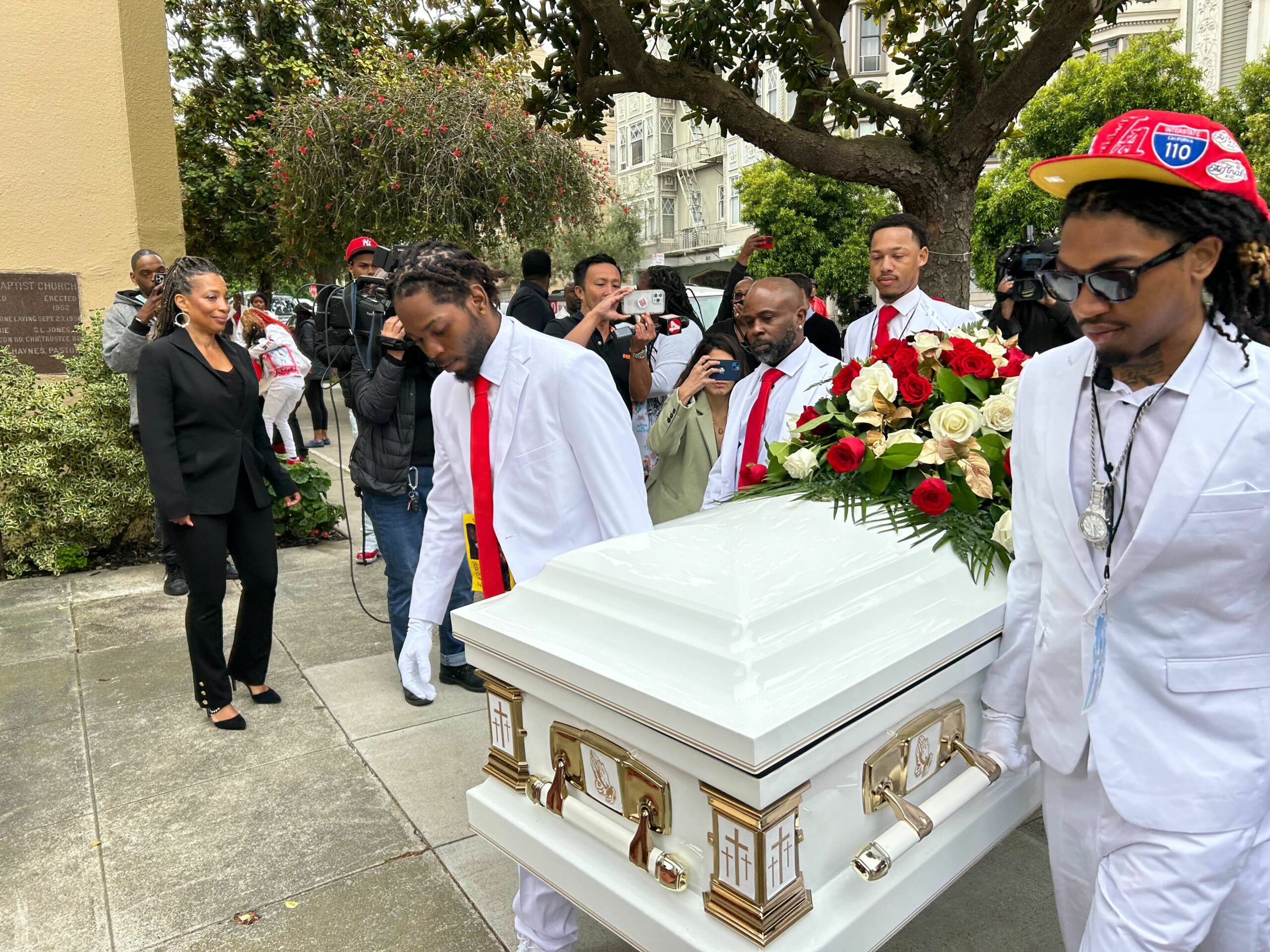The family of 24-year-old Banko Brown, who was killed outside a Downtown San Francisco Walgreens in late April, filed a wrongful death lawsuit against the security guard who shot him, the company who hired the guard and the drugstore chain, attorneys representing Brown’s family said Friday.
Michael Earl-Wayne Anthony shot Brown after an altercation allegedly involving shoplifting. San Francisco District Attorney Brooke Jenkins’ decision not to charge Anthony was decried by activists, politicians and members of the community, and the state attorney general’s office is now reviewing the case.
Civil rights attorney John Burris announced the family’s civil suit, which The Standard previously reported on, on Friday. The suit was filed Thursday evening. The family is seeking a minimum settlement of $25 million, Burris said at a press conference Friday afternoon.
“Anthony was on edge, a powder keg waiting to explode,” Burris said in the statement. “Walgreens and Kingdom Protective Services ordered their security to be more aggressive, causing their unfit security guard to blow up and kill Banko over nothing.”
Emotions ran high at Brown’s funeral Thursday, where a fight broke out among family members during a sermon decrying racism against Black people.
It was not clear whether the family would name a sum they believed Walgreens, Kingdom Group Protective Services and Anthony should pay.
Neither Walgreens nor Kingdom responded to emailed requests for comment as of publication.
The family’s civil suit comes after widespread outrage over the killing and the release of surveillance footage that raised questions about why Jenkins decided not to charge Anthony.
While police booked Anthony on suspicion of murder, he was released after Jenkins declined to charge him, saying, “the suspect believed he was in mortal danger and acted in self-defense.”
Because the shooting occurred “during the course and scope of a robbery, the law presumes that it is reasonable for Anthony to be in fear of great bodily injury or death,” the district attorney’s office said. Brown had been attempting to steal about $14 worth of food items, attorneys for the Brown family acknowledged.
Anthony told police that at some point during their scuffle, Brown threatened to stab him. However, there is no audio in the security footage, and Brown was later found to be unarmed.
The Standard later revealed that the private security firm employing Anthony had flip-flopped on its rules of engagement for guards.
Kingdom Group Protective Services had told guards to confront shoplifters in the lead-up to the shooting before rescinding the order an hour after the incident. Then, less than a week after the fatal encounter, guards were told not to bring guns to work. Ultimately, Walgreens canceled its contract with the firm.
According to Burris, the lawsuit will allege that Walgreens’ policy of hiring armed security guards was the wrong approach to address its theft problem.
Burris said he believes the changing instructions to guards contributed to their belief “that they could use deadly force whenever they saw fit.” He also described Anthony as “emotionally unsuited” for armed work.
